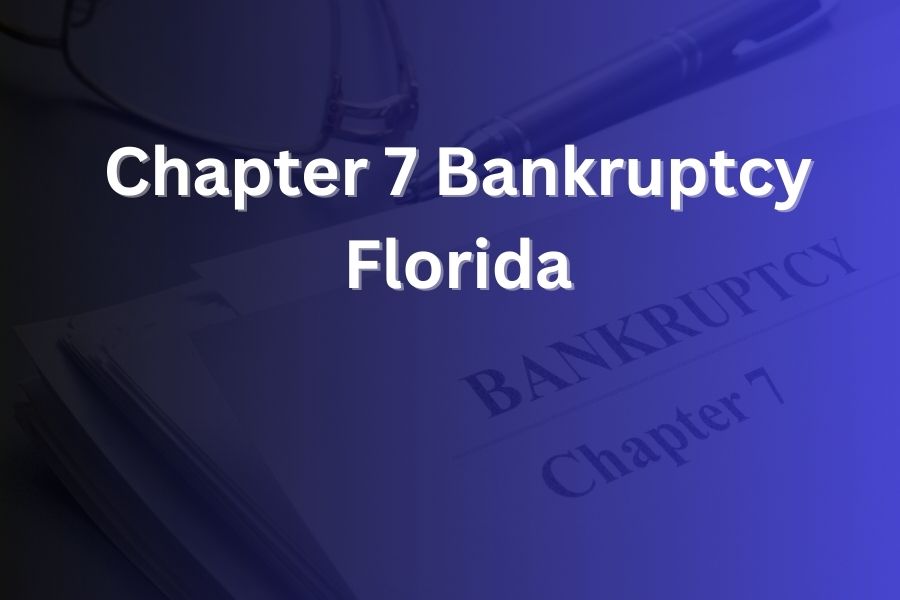
If you are drowning in unsecured debt in Florida and feel trapped by bills and collection calls, filing for Chapter 7 bankruptcy may offer you a path forward. With the right eligibility and preparation, you can wipe out many debts and rebuild your life.
In this article you will learn how Chapter 7 works in Florida, who qualifies, how exemptions apply in your state, the filing process, what debts you cannot discharge, and how to recover your credit after the case.
Understanding Chapter 7 Bankruptcy
Chapter 7 bankruptcy is a federal process that allows individuals to eliminate most unsecured debts while preserving certain exempt property. The court appoints a trustee who reviews your assets, sells non–exempt ones if any, and distributes proceeds to creditors. Many consumers in Florida file “no-asset” cases in which they keep all assets while obtaining a discharge of debt.
In Florida, Chapter 7 offers a fast route to debt relief — once you file, creditors must stop collections, garnishments, lawsuits and foreclosure efforts (subject to exceptions). The goal is to give you a “fresh start.”
Eligibility: Qualifying for Chapter 7 in Florida
To file Chapter 7 in Florida, you must satisfy a few key requirements. First, you must have completed an approved credit counseling course within 180 days prior to filing.
Second, you must pass the federal “means test.” This compares your household income (average of past six months) to the Florida median income for your family size. If your income is below the median, you qualify. If above, you may still qualify after deductions.
Third, you must disclose all of your assets, debts, income and expenses. Failing to do so can jeopardize the discharge or cause your case to be dismissed.
Florida Exemptions: Protecting Your Property
Florida offers generous exemptions that often enable filers to keep their home, car, retirement funds, and personal property. The Florida homestead exemption can protect the full value of your primary residence if certain conditions are met. Pension funds, 401(k)s, IRAs and other retirement assets enjoy strong protection.
Any equity in vehicles or other property can be shielded if it falls within exemption limits or has valid liens. Because of these protections, most Florida filers keep their assets while discharging debt.
Filing Process: What to Expect
- Gather financial records – List all your debts, assets, income, and expenses.
- File petition and schedules – You file your case with the U.S. Bankruptcy Court for your district in Florida. The filing triggers the “automatic stay” which halts creditor actions immediately.
- Attend the 341 meeting of creditors – About 30-40 days after filing you and your attorney meet with the trustee, answer questions under oath.
- Trustee review – The trustee reviews your case, determines if any non-exempt assets exist to be liquidated. In most Florida cases there are none.
- Objections period – Creditors have around 60 days from the meeting to object to your discharge; objections are rare.
- Receive discharge – Usually within 90-120 days from filing you receive a discharge order wiping out eligible debts.
What Debts Can Be Discharged and What Cannot
You can discharge most unsecured debts such as credit card balances, medical bills, personal loans, and past due utility bills.
However, certain debts cannot be wiped out through Chapter 7:
- Child support and alimony obligations
- Most recent income taxes (within ~3 years)
- Student loans (unless specific hardship proven)
- Debts for willful or malicious injury to persons or property
- Debts not listed in your bankruptcy schedules
In Florida your discharge will relieve you of personal liability for dischargeable debt, though secured creditors may still enforce liens (for example on a car or house) if you wish to keep the property and are behind on payments.
Advantages and Disadvantages of Chapter 7 in Florida
Pros:
- Fast process, typically 3-5 months
- Most unsecured debts wiped out
- Automatic stay protects you right away
- Many filers keep all their property thanks to exemptions
- Fresh start in rebuilding your finances
Cons:
- Remains on your credit report for up to 10 years
- You may lose non-exempt property in rare “asset” cases
- Some debts not dischargeable
- You cannot file another Chapter 7 for eight years after a discharge
- You’ll need to rebuild credit and financial habits
Common Mistakes to Avoid
- Waiting too long to file: A delay may cause income to rise or assets to be reduced, making eligibility harder.
- Not disclosing all assets or transfers: Hiding property or giving it away may lead to denial of discharge or criminal penalties.
- Charging large purchases before filing: Luxury purchases or cash advances can be deemed fraudulent and not discharged.
- Failing to complete required credit-counseling or debtor-education courses: Missing these steps may delay or derail the case.
- Assuming you automatically lose your home, car or retirement: In Florida, exemptions often protect these assets; don’t give up property without checking.
Rebuilding Your Credit After Discharge
Once your Chapter 7 case closes, you begin repairing your credit. Here are proven steps:
- Keep any remaining open accounts in good standing (such as student loans or mortgage).
- Don’t apply for new credit excessively. Let your score stabilize.
- Consider a secured credit card or credit-builder loan and pay it on time.
- Maintain employment, a stable address, and savings — these signal financial stability.
- Monitor your credit report annually to ensure discharged debts show “included in bankruptcy.”
Within a year you can begin to qualify for new credit and within two to three years you may even finance a home in Florida again. Many former bankruptcy filers rebuild stronger financial habits than they had before.
Is Chapter 7 Right for You in Florida?
If your income is low relative to Florida medians, you have mostly unsecured debt you can’t repay, and you want a fresh start quickly without a long repayment plan, Chapter 7 may be the right choice.
If, however, you have high income, significant non-exempt assets, you want to save your home from foreclosure, or you need to catch up on car or mortgage payments, you might consider Chapter 13 instead.
A qualified Florida bankruptcy attorney can analyze your assets, liabilities, income, and goals. They will help you weigh your options and decide whether Chapter 7 offers the best solution.
Florida Filing Trends and Recent Data
Recent filings in Florida show that the majority of Chapter 7 cases are “no asset” — meaning filers retain all eligible property. The U.S. Trustee’s office reports that more than 99 percent of individual Chapter 7 cases nationwide result in discharge. The median household income thresholds in Florida have recently increased, making more households eligible for Chapter 7.
Conclusion
If you live in Florida and are feeling overwhelmed by debt, Chapter 7 bankruptcy offers a legitimate, legal way to press the reset button. You can eliminate most unsecured debts, stop collection calls, and keep the property you are allowed to keep under Florida law. The process moves quickly, especially compared to Chapter 13.
It does leave a mark on your credit, but thousands of Florida residents rebuild and move ahead stronger. With careful preparation, honest disclosure, and professional guidance you can emerge from Chapter 7 with renewed financial freedom and a clear path forward.
